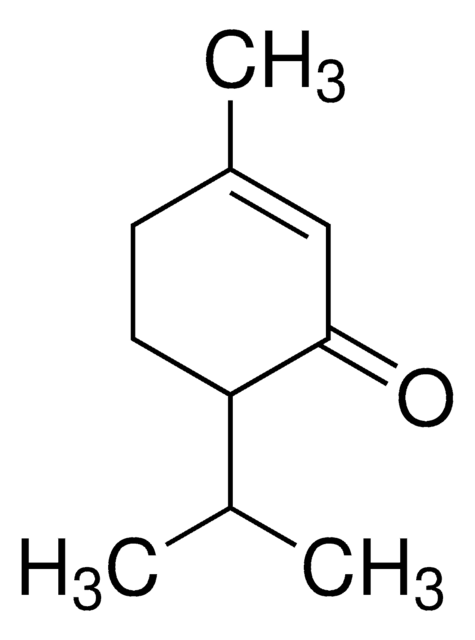30039
p-Cymene
analytical standard
Synonym(s):
1-Isopropyl-4-methylbenzene, 4-Isopropyltoluene
About This Item
Recommended Products
grade
analytical standard
Quality Level
vapor density
4.62 (vs air)
vapor pressure
1.5 mmHg ( 20 °C)
3.7 mmHg ( 37.7 °C)
assay
≥99.5% (GC)
autoignition temp.
817 °F
shelf life
limited shelf life, expiry date on the label
expl. lim.
5.6 %
technique(s)
HPLC: suitable
gas chromatography (GC): suitable
refractive index
n20/D 1.490 (lit.)
n20/D 1.491
bp
176-178 °C (lit.)
density
0.86 g/mL at 25 °C (lit.)
application(s)
cleaning products
cosmetics
environmental
flavors and fragrances
food and beverages
personal care
format
neat
SMILES string
CC(C)c1ccc(C)cc1
InChI
1S/C10H14/c1-8(2)10-6-4-9(3)5-7-10/h4-8H,1-3H3
InChI key
HFPZCAJZSCWRBC-UHFFFAOYSA-N
Looking for similar products? Visit Product Comparison Guide
Application
Other Notes
Recommended products
signalword
Danger
Hazard Classifications
Acute Tox. 3 Inhalation - Aquatic Chronic 2 - Asp. Tox. 1 - Flam. Liq. 3 - Repr. 2
Storage Class
3 - Flammable liquids
wgk_germany
WGK 2
flash_point_f
125.6 °F - closed cup
flash_point_c
52 °C - closed cup
ppe
Eyeshields, Faceshields, Gloves, type ABEK (EN14387) respirator filter
Choose from one of the most recent versions:
Already Own This Product?
Find documentation for the products that you have recently purchased in the Document Library.
Customers Also Viewed
Protocols
-β-Farnesene; α-Huµlene; Germacrene D; (+)-Valencene; Bicyclogermacrene; (+)-δ-Cadinene
Our team of scientists has experience in all areas of research including Life Science, Material Science, Chemical Synthesis, Chromatography, Analytical and many others.
Contact Technical Service

















